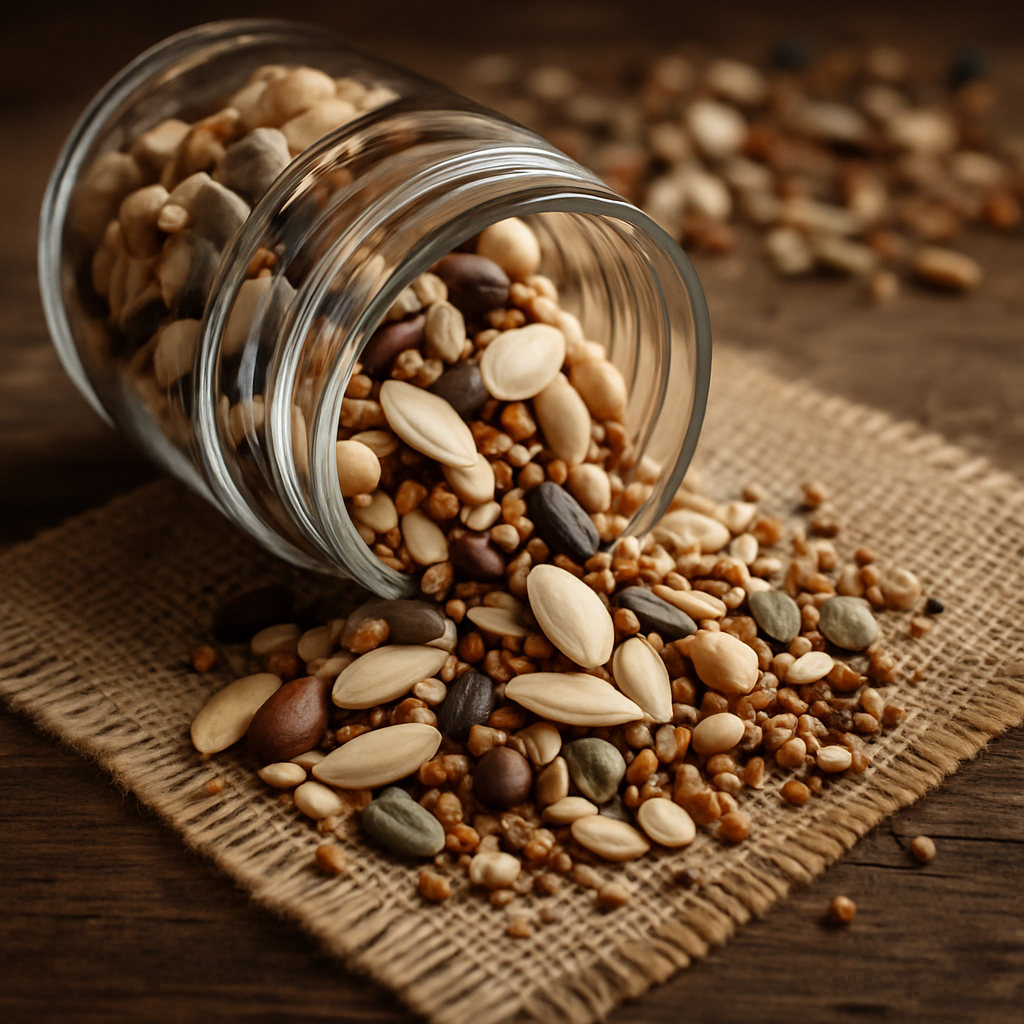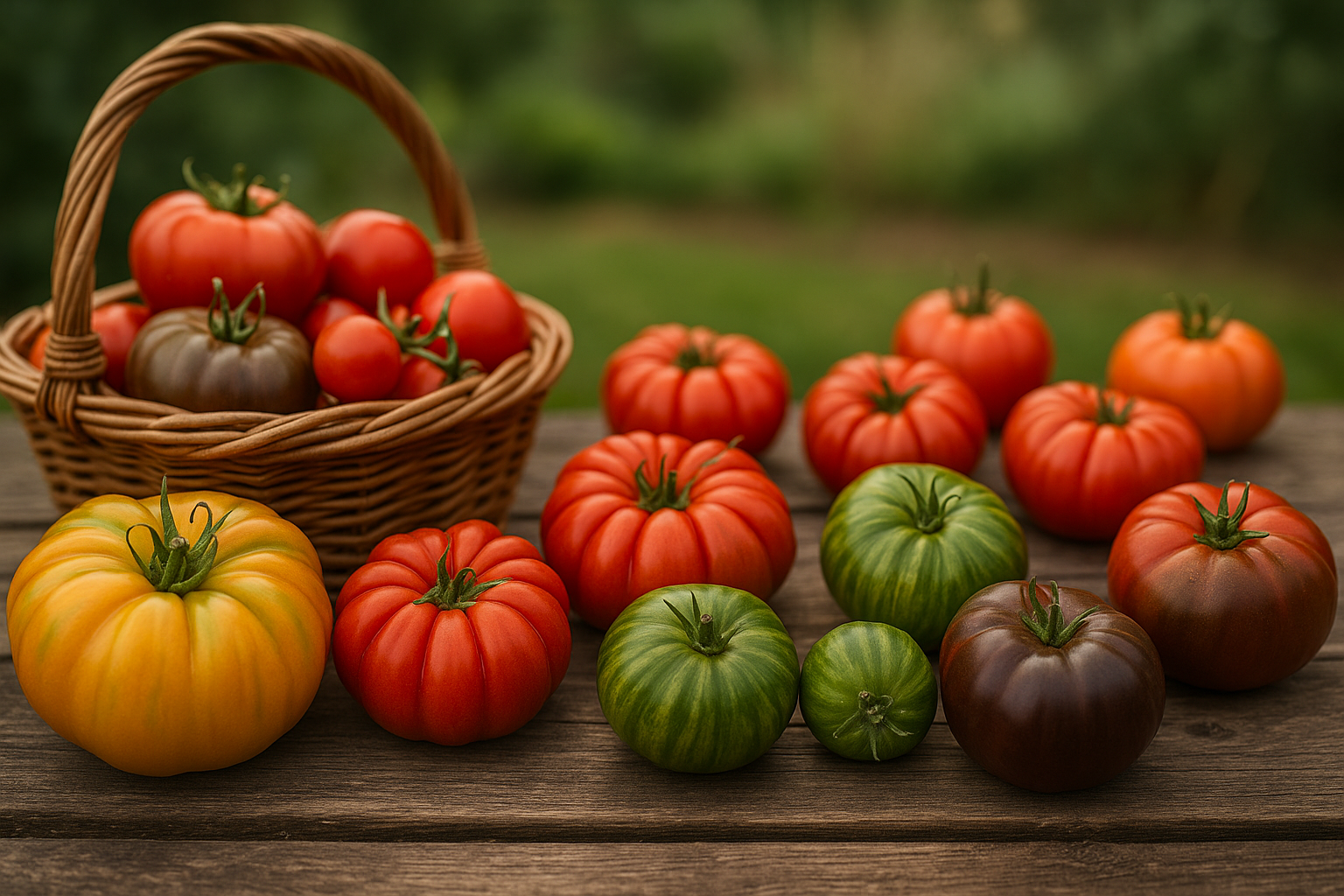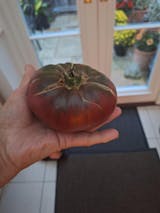🌱 Why understanding these terms is essential for your garden
When starting a permaculture garden or simply wanting to grow natural vegetables, you quickly come across terms like F1, hybrid, or reproducible.
Behind these words lie very different realities, which directly influence biodiversity, food autonomy, and the quality of your harvests.
At SemiSauvage Permaculture, we have made a clear choice: to offer only reproducible seeds, in order to preserve diversity and promote living and sustainable vegetable gardens.
🌿 1. What does an "F1" seed mean?
The term F1 means "first filial generation".
These are seeds from the controlled crossing of two pure lines, carried out by industrial agricultural techniques to obtain plants with very precise characteristics:
-
High Yield
-
Uniformity of fruits
-
Targeted resistance to certain diseases
🚫 The limits of F1 seeds:
-
❌ Harvested seeds cannot be resown: they lose their original qualities.
-
❌ Dependency: the gardener must buy seeds every year.
-
❌ They often contribute to crop standardization and loss of diversity.
F1s are mainly used in intensive agriculture and conventional garden centers. They may suit very specific needs, but they do not align with the logic of permaculture or food autonomy.
🌿 2. What is a hybrid seed?
A hybrid seed comes from a cross between two different varieties.
It can be:
-
Natural: occurs spontaneously by pollinators or by manual selection in the garden.
-
Stabilized: resown over several generations to create a new viable variety.
💡 To remember :
All F1 seeds are hybrids… but not all hybrids are F1.
The problem is not natural hybridization, but the dependency created by certain industrial processes.
🌿 3. Reproducible seeds: the SemiSauvage choice 🌱
The reproducible seeds are those you can sow, harvest, and resow every year.
They often come from heirloom varieties or so-called peasant varieties, selected for their taste, their hardiness, and their adaptability.
✅ Advantages:
-
🌾 Total autonomy : keep your seeds from one season to the next.
-
🌿 Preservation of plant heritage : save endangered heirloom varieties.
-
🌍 Enhanced biodiversity : each garden becomes a living reservoir.
-
🪴 Progressive adaptation: your plants get used to your soil and climate.
It is for these reasons that SemiSauvage Permaculture has chosen to offer only reproducible seeds among more than 300 varieties, for a sustainable and diverse vegetable garden.
📊 Comparison table
| Type of seed | Can be reseeded? | Origin | Suitable for permaculture? |
|---|---|---|---|
| F1 | ❌ No | Industry | ❌ No |
| Natural hybrid | ✅ Sometimes | Garden, selection | ✅ Yes |
| Reproducible | ✅ Yes | Heirloom varieties | ✅ Yes |
🌟 Conclusion
Choosing seeds is not just a technical decision: it is an ecological, ethical, and political act.
By favoring reproducible seeds, you contribute to:
-
Preserve biodiversity 🌿
-
Develop your food autonomy 🥕
-
Protecting plant heritage 🌸
At SemiSauvage Permaculture, each seed packet is an invitation to cultivate freedom and diversity. 🌱





Leave a comment
This site is protected by hCaptcha and the hCaptcha Privacy Policy and Terms of Service apply.